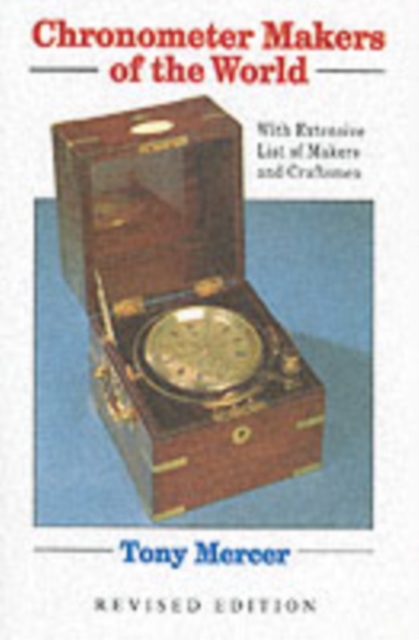
Chronometer Makers of the World Hardback
by Tony Mercer
Hardback
Description
The development of the marine chronometer is irrevocably linked to the intense rivalry and war among the British, French, Dutch and Spanish in the seventeenth and eighteenth centuries for domination of the seas to protect their trading vessels and expand their empires.
Every ship's captain had the same problem: at sea, he could not establish his position within hundreds of miles to the east or west.
The best solution seemed to be a clock to calculate how much the Earth had turned and thus accurately to establish longitude.
It would have to be as accurate on a pitching and tossing sailing ship as a precision pendulum clock on shore.
Each nation offered inducements to inventors. In 1714, the British government put up prizes totalling GBP45,000, worth over GBP2 million today.
The sum of GBP20,000 was eventually won by a Yorkshire clockmaking genius, John Harrison, whose first trade was carpentry.
Over the years that followed, marine chronometers were developed and produced in large numbers.
They are all collectors' items today. For many years, Tony Mercer, grandson of the most enduring English maker, has studied and collected a huge amount of information about these remarkable instruments that enabled explorers and the Royal Navy to map the world, the Navy to police it, and merchant venturers to sail in relative safety.
It would not be an exaggeration to say that the chronometer was one of the foundation stones of the British Empire.
The purpose of the chronometer is reviewed largely as a navigational aid for ocean-going vessels, but also for survey, medical and other activities calling for precise time measurement.
A complete chapter is devoted to John Harrison, rightly described as maker extraordinary, giving a fascinating insight into his herculean efforts to produce a timekeeper that would satisfy all the requirements of the Commissioners of Longitude.
Other great makers including John Arnold, Thomas Earnshaw, Le Roy, Berthoud, Frodsham, Dent, Kullberg and Tom Mercer are acknowledged for their evolutionary skills.
Representative examples of chronometers and deck watches by international makers - from the earliest known to contemporary instruments - are illustrated in both colour and black and white. A comprehensive list of makers and craftsmen brings together details of men who worked in the industry, their places of work and dates and serial numbers for their instruments.
There is also an extensive bibliography.
Information
-
Item not Available
- Format:Hardback
- Pages:320 pages, illustrations, (some colour ) bibliog
- Publisher:The Crowood Press Ltd
- Publication Date:01/04/2004
- Category:
- ISBN:9780719803406
Information
-
Item not Available
- Format:Hardback
- Pages:320 pages, illustrations, (some colour ) bibliog
- Publisher:The Crowood Press Ltd
- Publication Date:01/04/2004
- Category:
- ISBN:9780719803406






